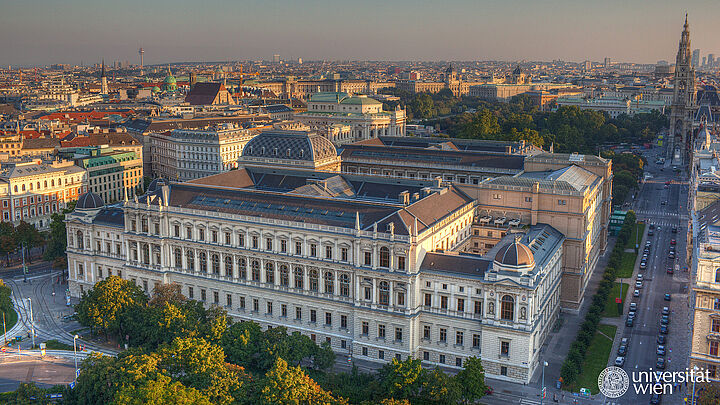Mittwoch, 20. Januar 2016, 18:30 - 20:00 iCal
Geschichte am Mittwoch - Geschichte im Dialog
Ideal type and reality of the early modern Hungarian Grand Tour. Hungarian and Transylvanian noble youths on peregrinatio academica, diplomatic mission and Kavalierstour
Universität Wien - Institut für Geschichte, HS 45
Universitätsring 1, 1010 Wien
Vortrag
Bálint Ugry: The Grand Tour served as the most important educational rite of passage for European noble youth in the early modern era and it also supported the young men to enter on the court society. Although the phenomenon also existed in the Kingdom of Hungary and in the Principality of Transylvania (1570–1711), the Kavalierstours set up by Hungarian noble families were most of the time different than the Grand Tours which has been departed from the Western European countries. The aim of the paper is to outline the paths of Hungarian Kavalierstours chosen by the nobility (mostly by the aristocracy) of the two above mentioned states: the Kingdom and the Principality. The objectives and most of the elements of the trips corresponded the Grand Tours undertaken by English, French, German, Austrian, etc. noble youth, but also differed from them – mostly of political and/or financial reasons. Other significant question is: can we speak about a court society in the Kingdom of Hungary and in the Principality of Transylvania?
Die Kavalierstour diente als wichtigster Übergangsritus für junge europäische Adelige in der Frühen Neuzeit: sie führte die junge Kavaliere in die höfische Gesellschaft ein. Obwohl das Phänomen im Königreich Ungarn und im Fürstentum Siebenbürgen (1570–1711) existierte, waren die Bildungsreisen ungarischer Adelssöhne meistens anders als die von westeuropäischen Jugendlichen absolvierte Grand Tour. Der Vortrag geht den Wegen und Möglichkeiten ungarischer Kavalierstouren nach. Die Ziele und die meiste Elemente dieser Bildungsreisen entsprachen den Grand Touren englischer, französischer, deutscher, österreichischer etc. Adeliger. Doch finden wir viele Unterschiede, die auf politische und finanzielle Faktoren zurückzuführen sind. Eine andere große Frage ist, ob wir im frühneuzeitlichen Königreich Ungarn und im Fürstentum Siebenbürgen über eine höfische Gesellschaft sprechen können.
Veranstalter
Kontakt
MMag.Dr. Andrea Brait
Institut für Geschichte
427740801
andrea.brait@univie.ac.at
Erstellt am Montag, 14. September 2015, 09:32
Letzte Änderung am Donnerstag, 05. November 2015, 09:54

